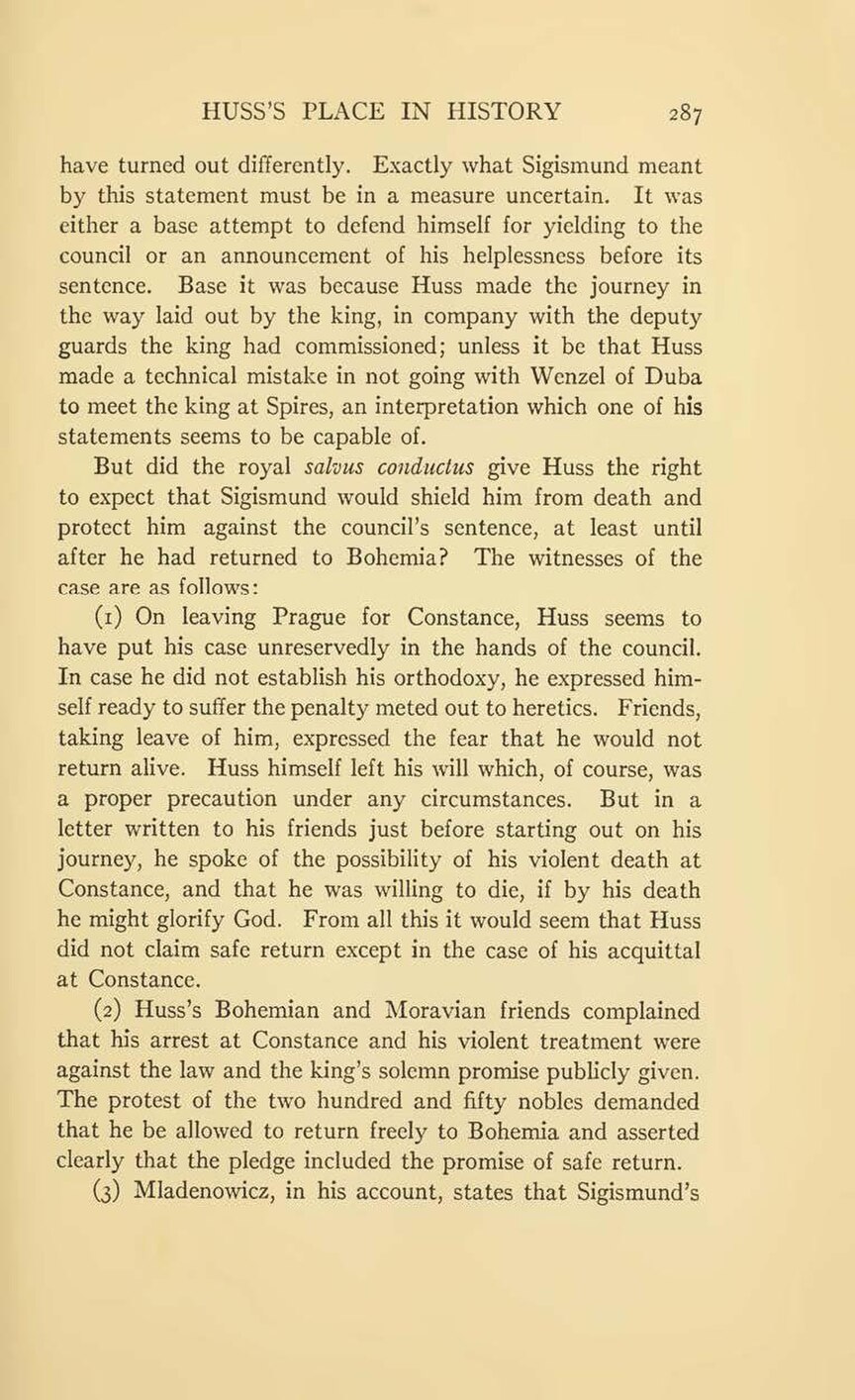have turned out differently. Exactly what Sigismund meant by this statement must be in a measure uncertain. It was either a base attempt to defend himself for yielding to the council or an announcement of his helplessness before its sentence. Base it was because Huss made the journey in the way laid out by the king, in company with the deputy guards the king had commissioned; unless it be that Huss made a technical mistake in not going with Wenzel of Duba to meet the king at Spires, an interpretation which one of his statements seems to be capable of.
But did the royal salvus conductus give Huss the right to expect that Sigismund would shield him from death and protect him against the council’s sentence, at least until after he had returned to Bohemia? The witnesses of the case are as follows:
(1) On leaving Prague for Constance, Huss seems to have put his case unreservedly in the hands of the council. In case he did not establish his orthodoxy, he expressed himself ready to suffer the penalty meted out to heretics. Friends, taking leave of him, expressed the fear that he would not return alive. Huss himself left his will which, of course, was a proper precaution under any circumstances. But in a letter written to his friends just before starting out on his journey, he spoke of the possibility of his violent death at Constance, and that he was willing to die, if by his death he might glorify God. From all this it would seem that Huss did not claim safe return except in the case of his acquittal at Constance.
(2) Huss’s Bohemian and Moravian friends complained that his arrest at Constance and his violent treatment were against the law and the king’s solemn promise publicly given. The protest of the two hundred and fifty nobles demanded that he be allowed to return freely to Bohemia and asserted clearly that the pledge included the promise of safe return.
(3) Mladenowicz, in his account, states that Sigismund’s
